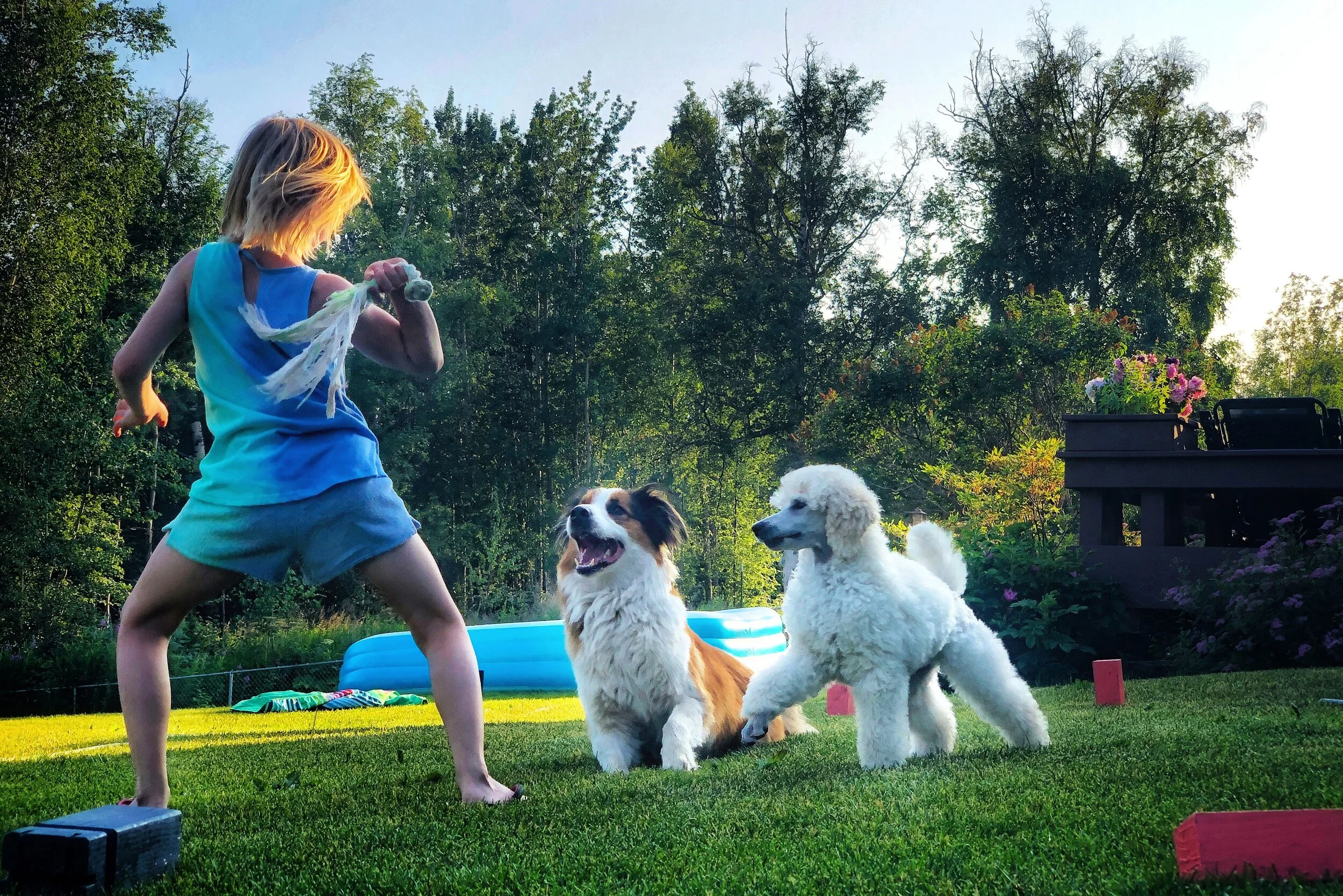The Value of Puppy Socialization
The Value of Puppy Socialization
Exploring the woods is a fantastic way to familiarize your puppy to its new environment! The smells and sounds of the flora and fauna in the woods creates mental stimulation that will make your puppy more confident as she grows up.
Puppies can keep us on their toes, can’t they?
Boy howdy! I know mine sure do!
All that energy balled up into a tiny package just waiting for the perfect opportunity to burst with joyful play! So what is the best way to direct that puppy play? And what about this giant word pet experts toss around; “socialization?” How important is it and how does it work, exactly?
A Great Dane puppy visiting friends gets a chance to explore new smells and sights
What is puppy socialization?
Well, socialization is pretty much exactly what it sounds; getting your puppy out and about to be social with other creatures. Domestic dogs interact with all sorts of living things; other dogs, humans, cats, pet fish, urban wildlife (rabbits, raccoons, skunks, squirrels) not to mention the wildlife who stick around when our human habitats intersect with their own (moose, deer, wild cats, bears and birds of prey). In short, our puppies don’t really have much of a choice; they must be acclimated to these other forms of life. And the best way to accomplish this is through simple socialization.
We know that puppies have a peak time in their early development when socialization is super important to their future as confident companions in our homes. This peak time is between 3 - 12 weeks of age.
As new puppy owners, on average, we will bring home our puppies between 8 - 12 weeks of age. Of course your breeder will be doing extra work to accustom your puppy to sounds such as the vacuum, doorbells, visitors and other dogs. But once we get to bring our puppy home to our own environment we will still have 2 to 4 weeks to engage our puppies and get them used to our lifestyles and habitat.
What’s even better news is that when we introduce new things to our puppies during this 8 - 12 week timeframe, we have to do less work and invest less time in new situations, than if we wait until our puppies are older!
A puppy that gets time with other dogs and children will be more confident as an adult dog.
Here is a basic list of things we should all look to introduce to our puppy when we first bring her home. And remember, if your puppy is between 8 - 12 weeks of age, your goal should be only a single introduction to each item on the list. No need to revisit an item multiple times because imprinting happens with great intensity during those early weeks in your puppy’s life:
-Unfamiliar people
-Unfamiliar dress (hoods, jackets, sunglasses, hats)
-Body handling (ears, paws, tail, and so on I cannot stress the value of body handling enough! This is one area that I strongly recommend you familiarize your puppy with on a very regular basis. At the end of the day, a dog who is comfortable with human touch on every part of his body is a dog that will have the best start to a stress-free and emotionally confident life)
Urban environments
Parks, bodies of water, woods, and beaches
Vehicles (with the engine running and not running)
Different types of flooring and ground surfaces
Common neighborhood objects like street signs, bicycles, strollers, skateboards, benches
Cats
Other dogs



